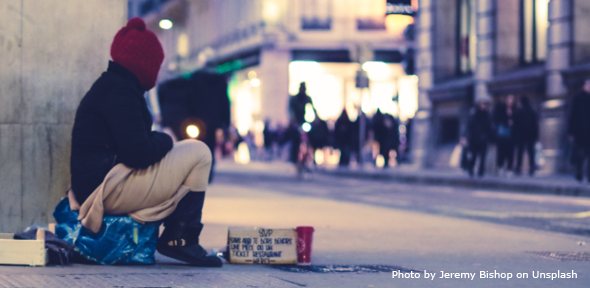
By Professor Mike Kelly
Health data generated during the Covid-19 pandemic continue to confirm that socioeconomic status directly affects a patient’s odds of survival. Certain ethnicities, as well as people from poorer areas of the UK and the elderly and frail, tend to fare worse — both in terms of infection rates and deaths. An obviously important question, however, is why? — What makes people from these backgrounds at greater risk of illness and death, and is this unique to the ongoing coronavirus pandemic?
Historical data suggest that these inequitable outcomes are not unique to the pandemic we face now. The north-south divide in deaths in the 1918 Spanish flu pandemic is almost identical to that seen with Covid-19, suggesting that exposure and response to these pandemics was not equal, and, further, that the past century has led to no serious improvement in this imbalance.
Inequalities in patterns of death and disease have, in fact, been observed since the 19th century in both European and American societies. We see these differences within and between cultures, and the inequalities are reflected in all forms of physical and mental health. And a great deal of research into non-communicable diseases, such as some cancers and heart disease, reveals a stark contrast in death rates based on ethnicity and socioeconomic status, with some evidence suggesting that these inequalities are only widening.
We’ve been fed, in other words, a lie by those who have suggested that disease is an equalizer, and, perhaps more perniciously, by those who suggest that health inequalities are unavoidable. If anything, disease makes inequality worse, with the poorer among us being left unable to work for long periods — or, in the case of America, with enormous and often insurmountable medical bills. The same problems that simmer below public consciousness — widespread income inequality, unequal access to medical care, and unequal opportunities for education — are exacerbated by public health crisis. Yet as a society, we’ve created the illusion that everyone is in this fight against disease together, and that we are all equally susceptible to its grasp.
Our actions, however, speak differently, and we’ve shown little interest, collectively, in reducing the huge rates of health inequality across the world over decades. The fact, for example, that the Western world has been able to purchase as many as three times more vaccine doses than has the developing world is telling.
Awareness of this widespread problem, as with any in the scientific world, is the first step towards addressing it. The health inequalities pillar at Cambridge Public Health aims to bring together many interests across the university — not just those in the clinical and the public health sciences, but the social, historical, and economic— to unmask, and to confront, the same inequities that have plagued us for the past two, and probably many more, centuries.
We aspire to drive interdisciplinary work, and are presently exploring important potential collaborations between specialists in infectious and non-communicable diseases to explore the relationship between Covid-19, non-communicable diseases, and inequality.
We hope that Cambridge Public Health will act as a catalyst to encourage cross-disciplinary dialogue and work in these areas, which is essential for moving beyond the rhetoric in conversations about health inequality. Please get in touch with the pillar leads, Mike Kelly if you’d like to be involved.


